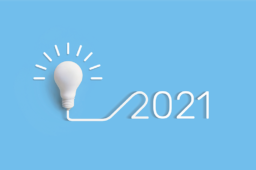
An exciting selection process
- April 05, 2018
Recruiting talent demands a lot from a recruiter, who must come well prepared to the job interview. The candidate will present himself well informed about the company, with trained answers to the usual questions and many questions. Both the interviewee and the interviewer are judged in the process. This is how you have to prepare yourself.
Two-way interviews
A company’s social profile and the need to attract talent have transformed job interviews into bidirectional ones. Candidates no longer simply prepare, but research the company on social networks and want answers to their own interests.
You must be aware, therefore, that a job interview needs good preparation. Be well informed about the characteristics of the job and what skills are required of the candidates, in order to get the most out of it. But also to know how to listen, to inform the candidate correctly and to respond to any of his needs for clarification. He may want clear information about what is expected of him, the objectives of the company, the working environment, about what he is going to learn, how far he can go… It is essential to inform him about learning plans and professional development.
We must also decide how the interview will be developed. Most candidates will come prepared to answer the usual questions, so you have to look for alternatives to really know their suitability for the job.
Interview recommendations
Have you ever seen a millennial recruiting workers? Sitting on a sofa, with the candidate’s information in front of him on his laptop, his conversation headset or Skype, he directly poses situations he will encounter in the job he aspires to and asks him to describe how he would resolve them.
In the job interview it is essential to discover that what you put on your CV is real. Using hypothetical cases or the worker’s experience is a good method. Also, introduce questions that are not expected and that are going to upset you, about information of the sector, international news, controversial subjects… Your reaction will demonstrate better than anything your capacity of improvisation and your ideas.
A good recommendation is not to over-structure the interview but to let it flow, to let the candidate carry some of the weight with his explanations and questions: a comfortable atmosphere favours authenticity. It should be noted that a candidate today is required, in addition to professional skills, flexibility and capacity for innovation.
The presentation of the company and the job should be solid and attractive. From the beginning, the applicant should feel interested and valuable for the company with a warm welcome, a personal description, for example, by the recruiter, of who he is in the company, what he does, what he especially likes about his job…The job must be well explained, the candidate will have many doubts about it. Where it is going to be done, what the team looks like, the working conditions, the clients he works for or the projects he is involved in… but also what the role of the position is inside the company and what is expected of it in the coming years. The candidate can be asked what he knows about the company to evaluate if his expectations are correct or to correct his vision, if necessary.
Very interesting to describe the day to day of his job and the working environment, or even show him the offices and introduce him to the team.
And of course, candidates who have been dropped from the selection process must be properly informed. A candidate is a potential client and brand ambassador, who must take care of her reputation as an employer, applying Employee branding techniques. That is why it is so important to take care of the whole selection process.
People First es un espacio de inspiración donde compartimos contenidos con un eje común: las personas. Desde distintas ópticas y sectores, abordamos varios temas, tendencias y noticias de interés humano.





